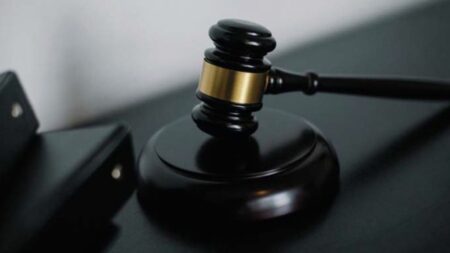Fees challenge fails

Matthew Smith, Jean Tsang and Vikki Watts assess the High Court judgment on VAT on school fees
Independent schools have lost their challenge to the government’s policy to impose VAT on independent school fees. In the 94-page judgment handed down on 13 June, the High Court found that the changes to the VAT regime were not incompatible with human rights law, as the impact was justified in the context of the government’s wider obligations to improve state education provision.
The Human Rights Act 1998 (HRA) gives effect to fundamental human rights and freedoms, including the right to education (protected under Article 2 of the First Protocol to the European Convention on Human Rights (ECHR)) and the right to property (protected under Article 1 of the First Protocol to the ECHR). It also prohibits discrimination in the enjoyment of those rights on grounds including sex, race, colour, language and religion (Article 14 of the ECHR).
The claims and the parties
In a rolled-up hearing, the High Court considered three linked judicial review claims brought by schools and individuals challenging the chancellor of the exchequer on the introduction of VAT on independent school fees.
The claim involved children (or the parents of children):
- In need of special educational needs support, but where there was either no Education and Health Care Plan in place, or where an independent school was not identified as part of that plan (in cases where it was, and that place is state funded, it is usually possible for the paying authority to reclaim the VAT).
- With particular religious beliefs which it was claimed were not accommodated within available state education.
- Where there was a claimed need for a single-sex educational environment, where no such provision was available locally in the state sector, and
- Who were foreign nationals seeking the teaching of a foreign curriculum.
The secretary of state for education intervened to argue, alongside the chancellor of the exchequer, that the VAT charge was compatible with human rights law, and HMRC and the Speaker of the House of Commons were both named as interested parties.
The right to education
While the circumstances of the claims were different, broadly the children and parents claimed that their right to access education was unfairly restricted by imposing VAT on independent school fees as the children had needs which could not be met in the state system.
The court was clear that it is not within its remit to take a view on the policy itself, or the political basis of the decisions which have been made, but only to determine whether the legislation in its new state is consistent with the provisions of the HRA.
Importantly, it has been established by prior case law that there is a significant ‘margin of discretion’ for the state when enacting policy which deals with the right to education protected by the HRA. This reflects the fact that there are a number of different interests which must be balanced in this area. The issue in the present case was whether the imposition of VAT on independent school fees fell within that margin of discretion.
The court found that the balance to be struck was between the interests of those adversely affected by the policy, on the one hand, and, on the other, the interests of those who might gain from the improvements to public provision which might be funded with the money the additional VAT would raise. The court concluded that the changes to the VAT rules fell within the broad margin lawfully afforded to the government to determine the proper balance between those competing interests.
The right to property
As well as the arguments regarding the right to education, the schools (and some of the parents) sought to argue that the introduction of VAT on independent school fees interfered with their right to property. These arguments were also unsuccessful – the conclusion that the measure was justified to interfere with the right to education meant that any interference with the right to property (to the extent there was such interference) was also justified.
What happens next?
Many won’t be surprised by the court’s decision in this case. Successful claims based on either the right to education or the right to property are relatively rare. Additionally, in this case, the decision to introduce VAT was “made by Parliament, in primary legislation, after full debate and was a manifesto commitment”. Given this, many think that the court was always likely to decide that the government had a relatively broad margin of discretion to introduce the VAT charge. A finding to the contrary would probably have raised questions from some about whether the court was taking an overly interventionist approach to a democratically introduced policy.
While undoubtedly disappointed by the judgment overall, independent schools will be relieved that the court disagreed with arguments put forward by the government that it could theoretically ban independent schools altogether.
Some of the claimants and their supporters have suggested that they may look to appeal the decision. For example, Caroline Santer, headteacher at the King’s School in Hampshire (one of the claimants) has said they will “continue to challenge the legality of this policy”. Meanwhile, the Independent Schools Council, which supported some of the claimants (including by providing evidence), has said that it is “carefully considering the court’s judgment and next steps”.
In order to appeal, the claimants would first need to be granted permission to appeal. If successful, the appeal would be heard in the Court of Appeal (with the potential for a further appeal to the Supreme Court).
The claimants were seeking a declaration that the VAT charged on independent school fees was incompatible with human rights law. Even if the case been successful and the court had made a declaration to that effect, the VAT charge would not have been removed automatically – instead it would have been left to Parliament to decide whether to change the law.
For now, schools will need to proceed on the basis that the new VAT rules are here to stay unless and until there is a further, successful challenge to them.
Matthew Smith is a partner, Jean Tsang a partner and head of education, and Vikki Watts the head of charity and social enterprise tax, at law firm Bates Wells.

Matthew Smith

Jean Tsang

Vikki Watts
